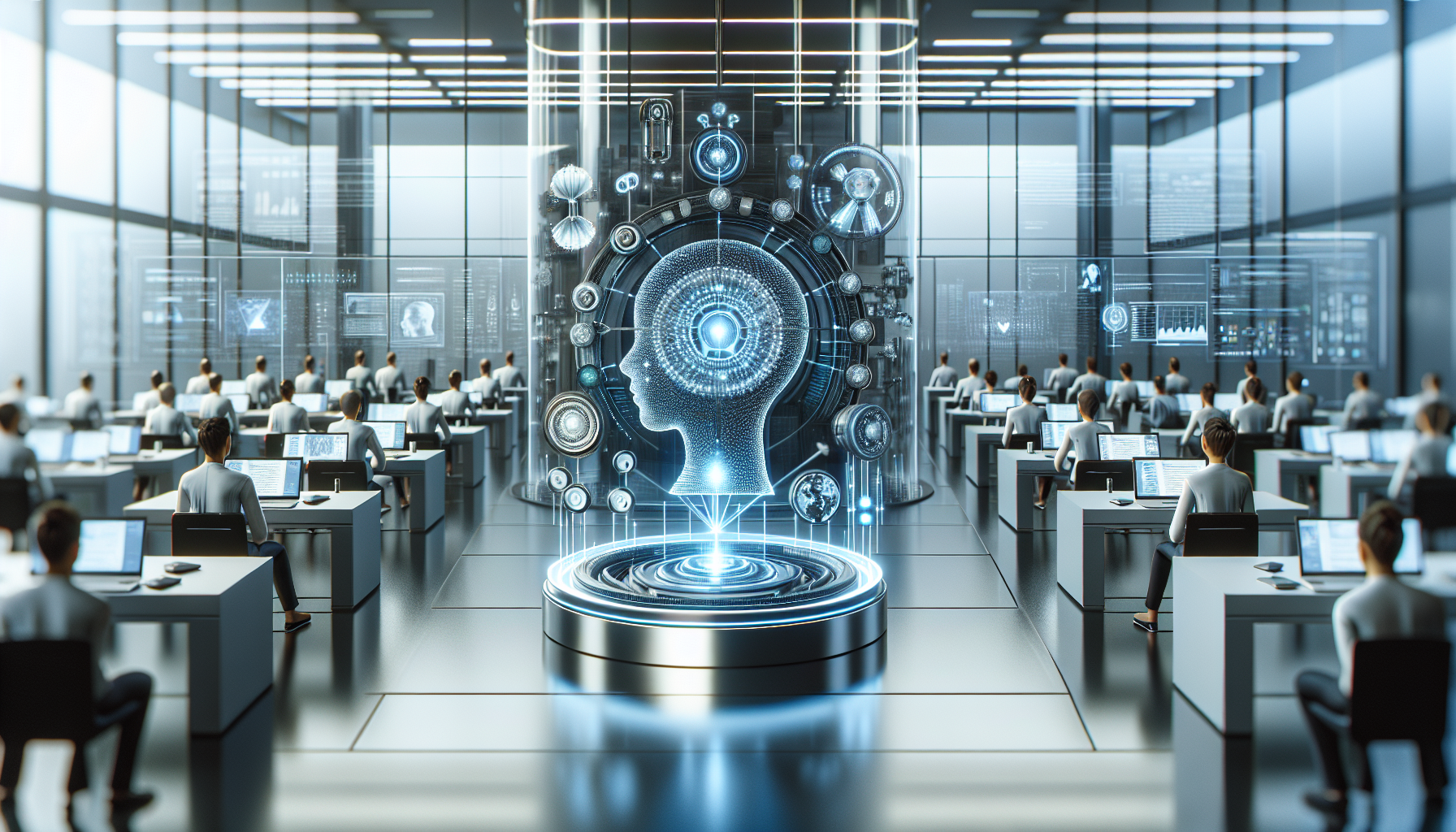
AI and the Future of Work: Navigating the Automation Revolution
April 18, 2025
If you’ve ever wondered whether robots are going to take over your job, you’re not alone. It's a question that has been on the tip of many tongues as artificial intelligence continues to weave its way into the fabric of our daily lives. It’s a topic that’s as fascinating as it is daunting, and it’s high time we had a candid discussion about what it means for the future of work and the job market.
First off, let’s dispel a common myth: AI isn’t about to replace us all with cyborg counterparts. It’s more nuanced than that. Imagine AI as a new co-worker—one who doesn’t drink coffee or take lunch breaks but is adept at crunching numbers faster than you can say “spreadsheet.” The reality is, AI excels at automating repetitive tasks, the kind that can be soul-crushing for humans but are a walk in the park for our digital friends.
Now, let’s consider the jobs that AI is likely to impact. The truth is, jobs involving routine tasks, data entry, and basic analysis are the low-hanging fruit for automation. But before we lament the loss of these positions, it’s worth noting that automation has historically led to the creation of new roles. The assembly line didn’t just eliminate jobs; it also created an entirely new industry. In a similar vein, AI is poised to birth new job categories—roles we might not even be able to imagine yet.
However, there’s a catch. The transition won’t be seamless. People in roles susceptible to automation are often the least equipped to transition to new, tech-driven jobs without significant retraining. This is where we, as a society, need to step up. The responsibility falls on us to ensure that the workforce is prepared for these changes. Investing in education, reskilling programs, and lifelong learning will be critical to help workers adapt to an AI-enhanced job market.
Let’s not forget the human element in all this. While AI can process data at lightning speed, it lacks the emotional intelligence that humans bring to the table. Jobs that require empathy, creativity, and complex decision-making are less likely to be automated. Think of roles in healthcare, education, and creative industries. These fields thrive on human interaction and intuition—qualities that AI, at least for now, cannot replicate.
Moreover, AI could enhance human capabilities rather than replace them. By taking over mundane tasks, AI frees up humans to focus on more strategic, creative, and rewarding aspects of their jobs. Picture a surgeon who uses AI to analyze complex medical data, enabling them to spend more time with patients and perform surgeries with greater precision. Or a teacher who employs AI to grade papers, allowing more time for personalized student interactions. In these scenarios, AI serves as an enabler, not a threat.
There’s also an ethical dimension to consider. The deployment of AI in the workplace must be handled with care to prevent exacerbating existing inequalities. Without thoughtful implementation, there’s a risk that AI could widen the gap between the tech-savvy and the tech-averse, the affluent and the marginalized. Companies have a responsibility to ensure that AI benefits are shared equitably across the workforce.
So, what should we take away from all this? It’s clear that AI is reshaping the job market, but it doesn’t have to be a harbinger of doom. Instead, it presents an opportunity—albeit a challenging one—to rethink how we work and what we value in our careers. We stand at a crossroads where we can choose to harness AI’s potential to create a more dynamic, inclusive, and innovative workforce.
The real question isn’t whether AI will change work—it’s already doing that. The question is, how will we respond? Will we embrace the challenge, invest in our future, and ensure that the transformation is beneficial for all? Or will we allow fear and complacency to dictate the outcome? The choice is ours, and it’s one that will shape the future of work for generations to come.


